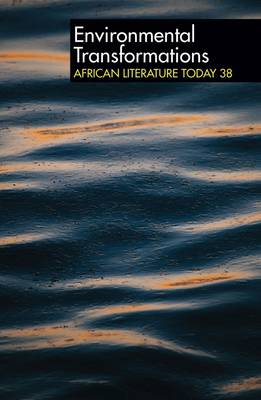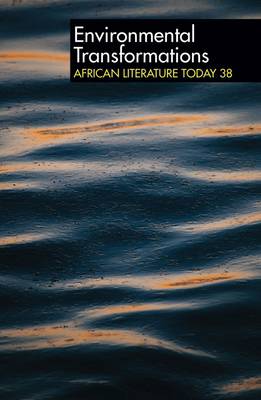
- Afhalen na 1 uur in een winkel met voorraad
- Gratis thuislevering in België vanaf € 30
- Ruim aanbod met 7 miljoen producten
- Afhalen na 1 uur in een winkel met voorraad
- Gratis thuislevering in België vanaf € 30
- Ruim aanbod met 7 miljoen producten
Zoeken
€ 153,45
+ 306 punten
Uitvoering
Omschrijving
This special issue examines the ways fiction and poetry engage with environmental consciousness, and how African literary criticism addresses the implications of global environmental transformations. Does environmentalist literature offer new possibilities for critical thinking about the future? What constitutes environmentalist fiction and poetry? What kind of texts, themes and topics does climate writing include? Does any text in which the environment features become available to environmentalist criticism? In their engagement with the diverse genres, themes and frameworks through which contemporary African writers address topics including urbanisation, cross-species communication, nature and climate change, contributors to this special issue help to define African environmental writing. They look at the literary strategies adopted by creative writers to convey the impact of environmental transformation in narratives that are historically informed by a century of colonialism, nationalist political activism, urbanisation and postcolonial migration. How does environmental literature intervene in these histories? Can creative writers, with their powerfully post-human and cross-species imaginations, carry out the ethical work demanded by contemporary climate science? From Tanure Ojaide's and Helon Habila's attention to environmental decimation in the Niger Delta through to Nnedi Okorafor's and Kofi Anyidoho's imaginative cross-species encounters, the special issue asks how literature mediates the specificities of climate change in an era of global capitalism and technological transformation, and what the limits of creative writing and literary criticism are as tools for discussing environmental issues.
This volume also includes a Literary Supplement.
Guest Editors: Cajetan Iheka (Associate Professor of English, Yale University) and Stephanie Newell (Professor of English, Yale University)
Series Editor: Ernest N. Emenyonu (Professor of Africana Studies at the University of Michigan-Flint)
Reviews Editor: Obi Nwakanma (Fellow, Department of English University of Central Florida)
This volume also includes a Literary Supplement.
Guest Editors: Cajetan Iheka (Associate Professor of English, Yale University) and Stephanie Newell (Professor of English, Yale University)
Series Editor: Ernest N. Emenyonu (Professor of Africana Studies at the University of Michigan-Flint)
Reviews Editor: Obi Nwakanma (Fellow, Department of English University of Central Florida)
Specificaties
Betrokkenen
- Auteur(s):
- Uitgeverij:
Inhoud
- Aantal bladzijden:
- 205
- Taal:
- Engels
- Reeks:
- Reeksnummer:
- nr. 38
Eigenschappen
- Productcode (EAN):
- 9781847012289
- Verschijningsdatum:
- 20/11/2020
- Uitvoering:
- Hardcover
- Formaat:
- Genaaid
- Afmetingen:
- 140 mm x 216 mm
- Gewicht:
- 385 g

Alleen bij Standaard Boekhandel
+ 306 punten op je klantenkaart van Standaard Boekhandel
Beoordelingen
We publiceren alleen reviews die voldoen aan de voorwaarden voor reviews. Bekijk onze voorwaarden voor reviews.







